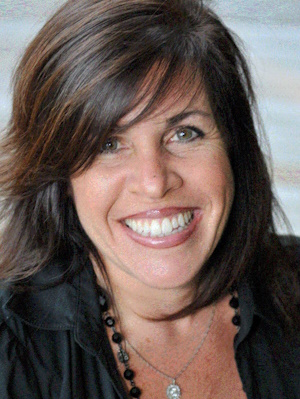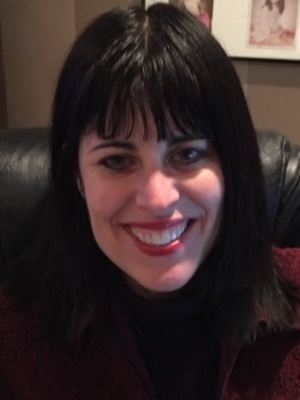Helping Your Clients Cope with Divorce and Separation
Enroll in the Online Self-Study course and complete it at your own pace.
3 CE hours available for behavioral health clinicians upon completion.
Divorce is more than a legal event—it’s an emotional earthquake that shakes entire family systems, leaving adults, children, and clinicians struggling to find steady ground. Behavioral health professionals are often the lifeline in these moments of chaos, but many lack the specialized tools to navigate the intense relational, psychological, and ethical complexities that come with divorce and separation.
This course invites clinicians to step confidently into that role, offering a deeper, more strategic approach to supporting families in distress. By gaining clarity on the legal, emotional, and clinical landscapes of divorce, you'll feel more equipped—and less overwhelmed—when guiding clients through some of life’s most painful transitions.
Enroll in the 3 CE Online Self-Study for $97
Payment Options are listed at checkout
Dr. Alyse November, Ph.D., LCSW, ACSW, CST, and Stephanie Newberg, MEd, MSW, LCSW, are seasoned clinicians with decades of experience working with individuals and families facing high-conflict separations. Their extensive knowledge of trauma, family dynamics, personality disorders, and co-parenting challenges uniquely positions them to teach clinicians how to effectively intervene when families are at their breaking point.
With a balance of compassion and clinical rigor, the instructors guide learners through both the psychological undercurrents and real-world strategies necessary for therapeutic success. This course brings to life the emotional realities of divorce while anchoring clinicians in practical, trauma-informed, and systems-based methods.
Participants will explore the psychological toll of infidelity, emotional instability, and legal entanglements; the ripple effects of divorce on children; the role of therapists in court-involved cases; and the critical distinctions between couples counseling and co-parenting counseling. The course also delves into parental alienation, high-conflict dynamics, and the unique challenges of blended families.

Instructor
Alyse November, PhD, LCSW obtained her Bachelor’s degree in Psychology, her Master’s Degree in Social Work from Adelphi University, N.Y., and her PhD in Clinical Sexology from IICS. She is credentialed by the Academy of Certified Social Workers.
Alyse is the founder of Different Like Me, a company with a staff of over 30 professionals providing psychotherapy, psychoeducational testing and cognitive rehabilitation. As a licensed clinical social worker, Alyse provides psychotherapy to individuals across the lifespan. A substantial portion of her practice has focused on addressing challenges faced by children, adults, seniors, and families ranging from trauma, narcissistic and borderline family recovery, aging, chronic illness, divorce, trans-care, relationships, parenting, and special needs, end of life issues, dementia, caregiving, educational challenges, anxiety, and depression.

Instructor
Stephanie Newberg, LCSW, M.Ed, is a licensed psychotherapist in FL and PA, working with individuals, couples, and families. She has been in practice for more than 25 years, specializing in family and couples therapy, conflict resolution, grief and loss, parenting support, and the implications of divorce on children and families. In addition, Stephanie is a trained family and divorce mediator/ co-parent counselor and has received intensive training in sand tray play therapy for adolescents and children.
Stephanie has led numerous workshops and presentations for adults and adolescents on relationship and communication skills, dealing with the effects of divorce on families, diversity issues, cyberbullying/effects of technology on development, nutrition, and mental health, and conflict resolution skills.
Key Takeaways:
Clarity on ethical standards: Gain a deep understanding of how professional codes of ethics apply in telehealth settings and across state lines.
Confidence in complex situations: Learn how to analyze, navigate, and resolve ethical dilemmas in telemental health using practical decision-making models.
Protection for clients and clinicians: Strengthen your ability to safeguard client confidentiality and navigate dual roles, all while staying compliant with legal standards.
Why this course?
A trusted authority: Dr. Ann Ordway’s unique combination of legal and clinical expertise ensures a comprehensive and credible learning experience.
Immediate application: Clinicians will walk away with tools and strategies they can apply right away to ethically strengthen their telehealth practice.
Backed by excellence: Offered by the Telehealth Certification Institute, a leader in behavioral health education committed to innovation, integrity, and client-centered care.
Learning Objectives:
Discuss the specific provisions of various professional codes of ethics that guide telehealth practice in behavioral health.
Identify at least two ethical dilemmas that might arise in the context of providing telehealth services and apply ethical decision-making processes to resolve these dilemmas.
Explore the challenges of maintaining confidentiality and managing dual relationships in the context of telehealth.
Evaluate the implications of telehealth on informed consent and documentation practices in behavioral health services.
Whether you're working with individuals experiencing the emotional fallout of divorce or counseling families in legal conflict, this course offers the tools and insight to meet your clients where they are—and help them move forward with greater clarity, support, and care.
Enroll now to gain the confidence and competence to guide families through one of life’s most difficult transitions.
This is a non-interactive, self-study course. Instruction consists of 3 hours of video instruction and a post-test.
Select each tab for course details
Availability: From the time of registration, you have six months to access the coursework.
Who Should Attend: This course is intended for clinicians who provide behavioral health services.
Teaching Methods: This is a non-interactive, self-study course. Teaching methods for this course include recorded lectures, videos, a post-test, and a course evaluation.
How to attend: Directions for completing a course can be found by clicking here.
This program was recorded on September 27, 2024.
Testimonials
Bridgette Nalumu
Public health consultant, Green and Purple Consultancy Network
Lora Verley
Clinical Therapist, Bayless Integrated Healthcare
Jackie Tanna
Therapist, Region One Mental Health
Jackie Bell-Russell
Therapeutic Behavioral Strategist, Rialto Unified School District